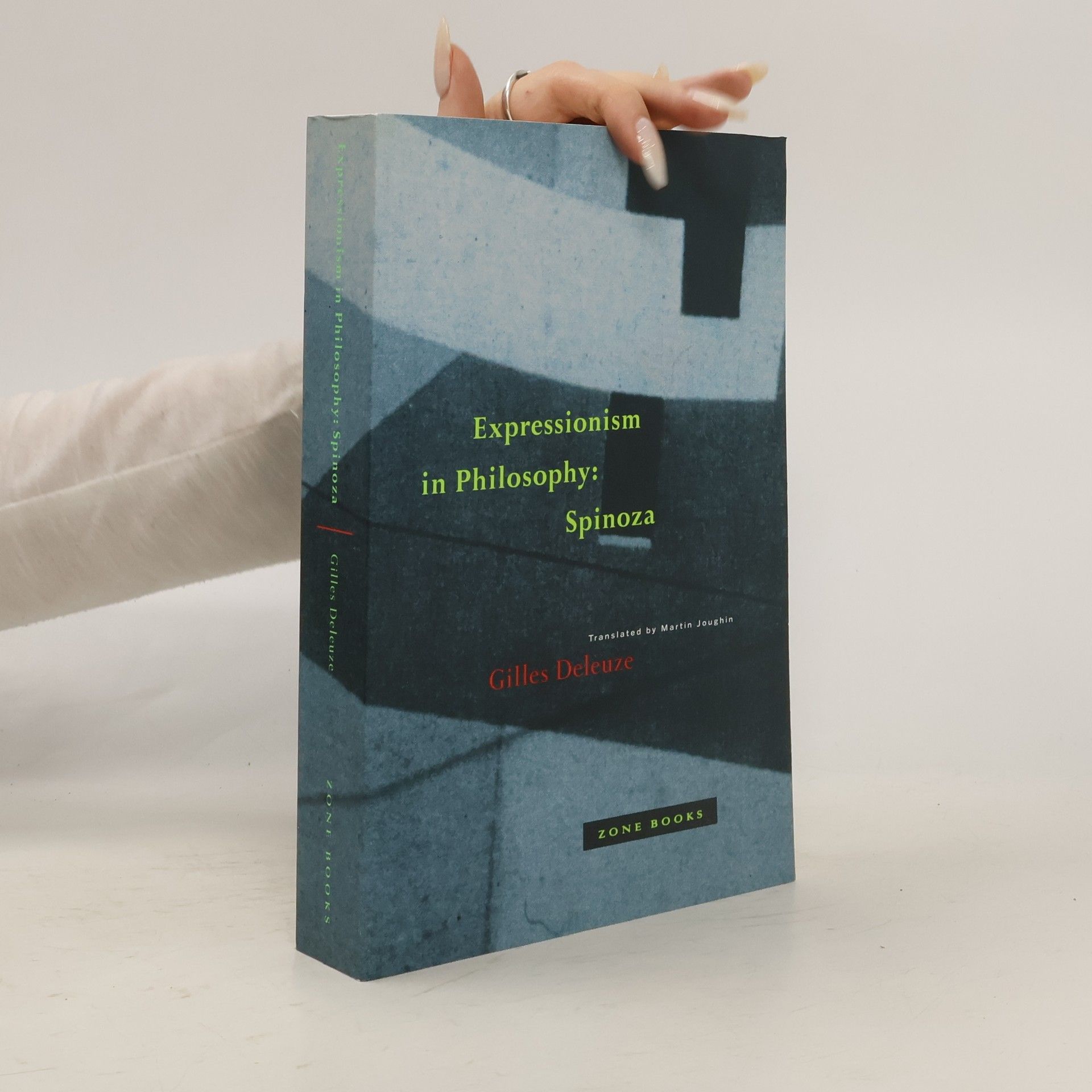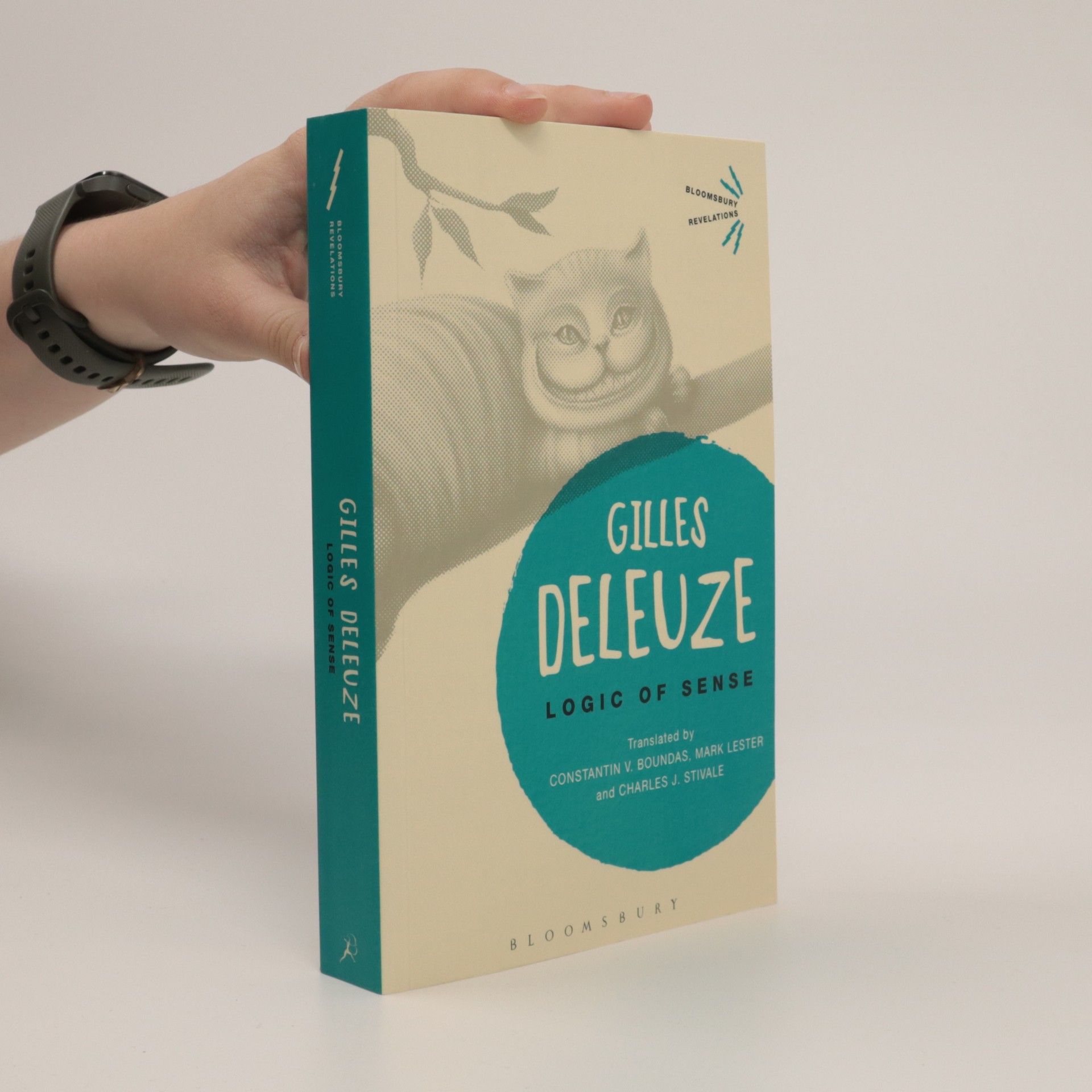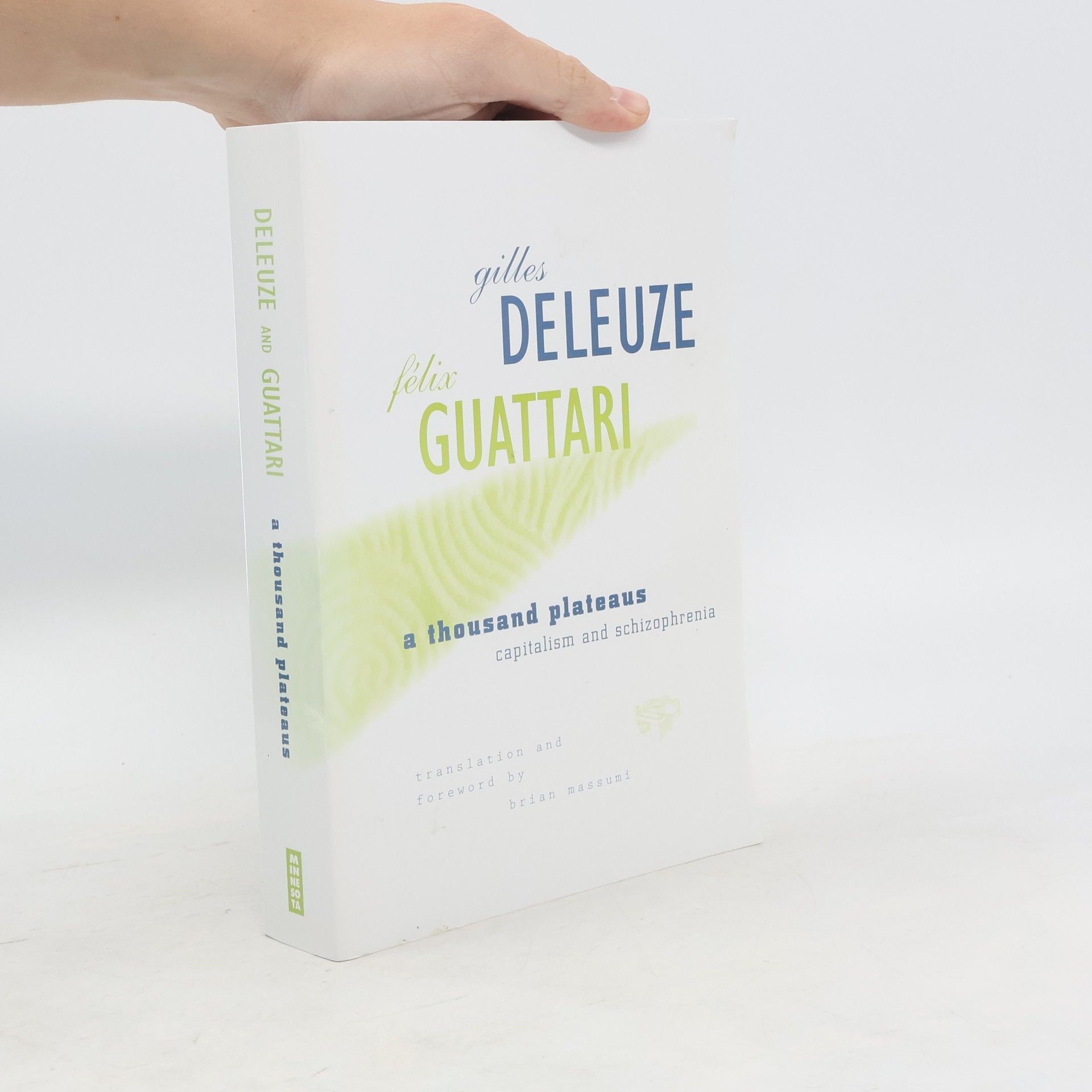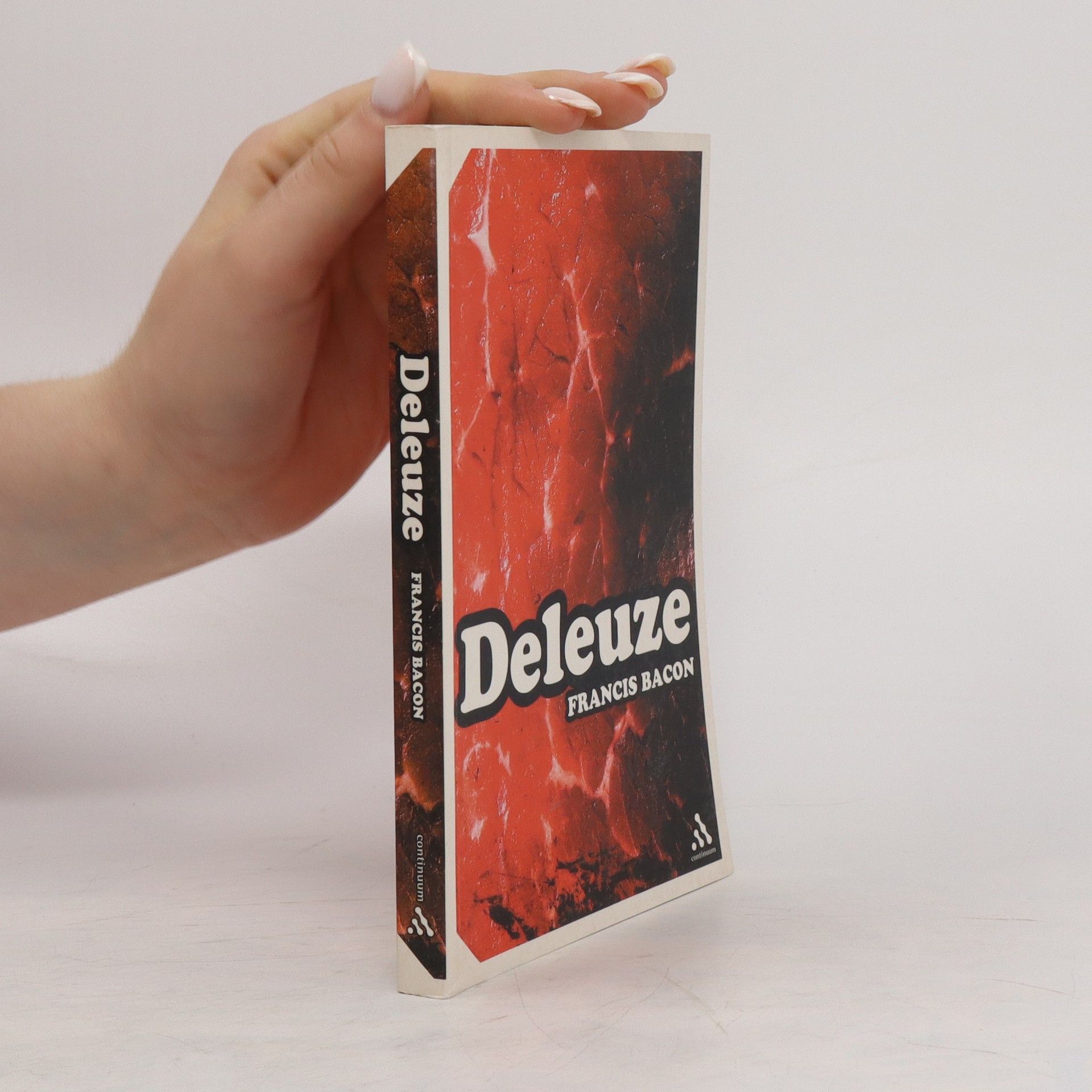Gilles Deleuze (1925-1995) was Professor of Philosophy at the University of Paris VIII. He is a key figure in poststructuralism, and one of the most influential philosophers of the twentieth century. Felix Guattari (1930-1992) was a psychoanalyst at the la Borde Clinic, as well as being a major social theorist and radical activist. A Thousand Plateaus is part of Deleuze and Guattari's landmark philosophical project, Capitalism and Schizophrenia - a project that still sets the terms of contemporary philosophical debate. A Thousand Plateaus provides a compelling analysis of social phenomena and offers fresh alternatives for thinking about philosophy and culture. Its radical perspective provides a toolbox for nomadic thought and has had a galvanizing influence on today's anti-capitalist movement. Translated by Brian Massumi
Gilles Deleuze Boeken
Gilles Deleuze is een sleutelfiguur in de postmodern Franse filosofie, die zichzelf identificeerde als empirist en vitalist. Zijn omvangrijke oeuvre, gebouwd op concepten als multipliciteit, constructivisme, verschil en verlangen, wijkt aanzienlijk af van de hoofdlijnen van het 20e-eeuwse continentale denken. Binnen zijn metafysische kader omarmde hij het Spinozistische idee van een immanentie-vlak, waarbij hij al het bestaan postuleerde als modi van één enkele substantie op hetzelfde ontologische niveau. Deze visie leidde hem tot de stelling dat er geen inherent goed of kwaad bestaat, maar in plaats daarvan relaties die gunstig of schadelijk zijn voor individuen. Deze ethische houding beïnvloedde zijn betrokkenheid bij sociale en politieke strijden voor rechten en vrijheden. Deleuze zocht vaak naar filosofische 'ontmoetingen' met andere denkers en kunstenaars, waarbij hij filosofie niet zag als commentaar, maar als een creatieve daad die nieuwe concepten genereert, en benadrukte een realiteit gekenmerkt door constant worden in plaats van statisch zijn.







Two Regimes of Madness
- 424bladzijden
- 15 uur lezen
Texts and interviews from the period that saw the publication of Deleuze's major works.
Logic of Sense is one of Deleuze's seminal works. First published in 1969, shortly after Difference and Repetition, it prefigures the hybrid style and methods he would use in his later writing with Felix Guattari. In an early review Michel Foucault wrote that Logic of Sense 'should be read as the boldest and most insolent of metaphysical treatises'. The book is divided into 34 'series' and five appendices covering a diverse range of topics including, sense, nonsense, event, sexuality, psychoanalysis, paradoxes, schizophrenia, literature and becoming and includes fascinating close textual readings of works by Lewis Carroll, Sigmund Freud, Seneca, Pierre Klossowski, F. Scott Fitzgerald, and Émile Zola. Logic of Sense is essential reading for anyone interested in post-war continental thought.
"The first volume of Gilles Deleuze's landmark philosophical study of the art of film, now available in the Bloomsbury Revelations series"-- Provided by publisher
Negotiations, 1972-1990
- 221bladzijden
- 8 uur lezen
A provocative guide to Deleuze by Deleuze, this collection traces the intellectual journey of one of the most important French philosophers and clarifies the key critical concepts in the work of this vital figure who has had an impact on aesthetics, film theory, psychoanalysis and cultural studies.
Expressionism in Philosophy
- 445bladzijden
- 16 uur lezen
Expressionism in Philosophy is both a pivotal reading of Spinoza's work and also a crucial text within the development of Deleuze's own thought.
A fascinating anthology of texts and interviews written over 20 years by renowned French philosopher Gilles Deleuze.
Spinoza's theoretical philosophy is one of the most radical attempts to construct a pure ontology with a single infinite substance. This book, which presents Spinoza's main ideas in dictionary form, has as its subject the opposition between ethics and morality, and the link between ethical and ontological propositions. His ethics is an ethology, rather than a moral science. Attention has been drawn to Spinoza by deep ecologists such as Arne Naess, the Norwegian philosopher; and this reading of Spinoza by Deleuze lends itself to a radical ecological ethic. As Robert Hurley says in his introduction, "Deleuze opens us to the idea that the elements of the different individuals we compose may be nonhuman within us. One wonders, finally, whether Man might be defined as a territory, a set of boundaries, a limit on existence." Gilles Deleuze, known for his inquiries into desire, language, politics, and power, finds a kinship between Spinoza and Nietzsche. He writes, ""Spinoza did not believe in hope or even in courage; he believed only in joy and in vision . . . he more than any other gave me the feeling of a gust of air from behind each time I read him, of a witch's broom that he makes one mount. Gilles Deleuze was a professor of philosophy at the University of Paris at Vincennes. Robert Hurley is the translator of Michel Foucault's History of Sexuality.
Nomadology
- 147bladzijden
- 6 uur lezen
Gilles Deleuze and Felix Guattari redefine the relation between the state and its war machine. Far from being a part of the state, warriers (the army) are nomads who always come from the outside and keep threatening the authority of the state.
Francis Bacon
- 176bladzijden
- 7 uur lezen
Francis Bacon is Deleuze's long-awaited work on Bacon, widely regarded as the one of the most radical painters of the twentieth century. The book presents a deep engagement with Bacon's work and the nature of art. Deleuze analyses the distinctive innovations that came to mark Bacon's style while introducing a number of his own famous concepts. Deleuze links Bacon's work to Cezanne's notion of a "logic" of sensation, which reaches its summit in colour. Investigating this logic, Deleuze explores Bacon's crucial relation to past painters such as Velasquez, Cezanne, and Soutine, as well as Bacon's rejection of expressionism and abstract painting.

